Trends and Innovations in Electronic Design Automation Software
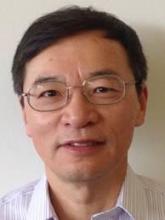
Dr. Steve Chen
R&D Section Manager
EEsof EDA Division, Keysight Technologies
Thu, 09/03/2015
Abstract – In this presentation, Dr. Chen will share his view of how the trends of Cloud, Big Data, IoT and 5G drive demands in electronic design. Key technological enablers will be highlighted and the rapidly increasing technical complexity and challenges faced by electronic designers will be discussed. An overview of Electronic Design Automation (EDA) will be provided at various levels of abstraction, with emphasis on how EDA innovations can help designers address technical challenges. A number of specific and current engineering case studies will be illustrated. The talk will conclude with a discussion of core skills for a successful career in EDA software industry. Dr. Steve Chen is an R&D Section Manager in the EEsof EDA division at Keysight Technologies. He leads R&D teams at several global sites responsible for developing simulation software for circuit design, electromagnetic and electrothermal verification. He is also the R&D leader for the high-speed digital EDA business segment. Steve received his B.S. degree in EE from South China Institute of Technology and his Ph.D. degree in EE from McMaster University in Canada. He held positions in academia and a small start-up before joining Hewlett-Packard in Santa Rosa in 1997. Since then he stayed in the EEsof EDA division as the company evolved from H-P to Keysight to Keysight.
Dr. Chen has broad experience in both academic research (60+ journal papers published) and engineering management. He has technical expertise in electromagnetics, optimization and statistical analysis, semiconductor device modeling, RF microwave circuits and systems. His current focus is on high-speed digital design solutions, particularly on signal and power integrity, EMC/EMI and photonics.
Augmented Phonocardiogram Acquisition and Analysis
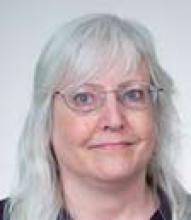
Drs. Nancy & Todd Reed
Depts of CS & EE, University of Hawaii at Manoa
Thu, 04/16/2015
Abstract – Heart auscultation (the interpretation of heart sounds by a physician) is a widely used screening method for heart disease. It is well documented, however, that with the exception of expert cardiologists, physicians' auscultation skills are limited. It has also been shown that standard training methods do little to improve these skills. In this paper, we propose an architecture for a phonocardiogram analysis system that can augment a physician's auscultation abilities and serve as a training aid to improve those abilities.
Dr. Nancy E. Reed received the B.S. (Biology), M.S (1988) and Ph.D. (1995) degrees in Computer Science from the University of Minnesota. From 1993, Dr. Reed lectured at SSU and was an Adjunct Assistant Prof. at UC Davis. In 1998, she joined the CIS Department at Linköping University (Sweden) and was awarded the Docent in 2003. She joined the University of Hawaii in 2002 as an Assistant Professor in EE. She transferred to the Information and Computer Sciences Department in 2004 and has been an Associate Professor in ICS since 2007. In 2008 she was a Visiting Scholar at the University of California, Berkeley. Dr. Reed is a member of AAAI, ACM, ACM SIGAI, AHA, AMIA, IEEE, and the IEEE Computer Society.
Dr. Todd R. Reed received the B.S., M.S., and Ph.D. degrees in Electrical Engineering from the University of Minnesota in 1977, 1986, and 1988, respectively. From 1977 to 1983 he was an Electrical Engineer at IBM and from 1984 to 1986 he was a Senior Design Engineer for Astrocom Corporation, St. Paul, Minnesota. He served as a consultant to the MIT Lincoln Laboratory from 1986 to 1988. In 1988 he was a Visiting Assistant Professor in the Department of Electrical Engineering, University of Minnesota. From 1989 to 1991 he was the head of the image sequence processing research group in the Signal Processing Laboratory, Department of Electrical Engineering, at the Swiss Federal Institute of Technology in Lausanne. From 1998 to 1999 he was a Guest Researcher in the Computer Vision Laboratory, Department of Electrical Engineering, Linkoeping University, Sweden. In 2000 he was a Guest Professor in the Programming Environments Laboratory in the Department of Computer Science at Linkoeping. From 1991 to 2001 he was on the faculty of the Department of Electrical and Computer Engineering at the University of California, Davis. In 2002 he joined the Department of Electrical Engineering at the University of Hawaii, Manoa, where he is currently a Professor. In 2008 he was a Visiting Scholar in the Department of Electrical Engineering and Computer Science at the University of California, Berkeley. He joined the Graduate Faculty in Neuroscience, John A. Burns School of Medicine, University of Hawaii at Manoa in 2010.
The Electrical Grid of the Future Featuring Smart Grid, Distributed Resources and Energy Storage
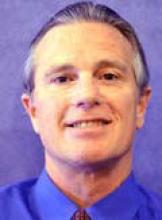
Mr. Jim Eyer
Senior Analyst and Principal E&I Consulting and Senior Advisor
California Energy Storage Alliance
Thu, 04/02/2015
Abstract – The electrical grid evolved slowly throughout most of the 20th century, in part, because electrical equipment was typically left in service for thirty or more years after installation. So, the utility infrastructure was relatively unaffected by technological innovation. Change began in the late 1970s, driven by 1) increasing focus on environment and energy efficiency, 2) increasing “NIMBY” sentiment regarding large generation plants and high power transmission, 3) renewable energy generation and cogeneration, 4) power electronics advances (e.g. IGBTs) and 5) competition. Recently, the emergence of distributed energy resources (DERs) and Smart Grid accelerate change. Smart Grid is especially important: it enables more optimal coordination, integration and use of a) the electrical infrastructure and b) new technologies than was possible using the relatively “dumb” controls of the past. This fast paced presentation addresses the evolution of the electrical grid and the electrical grid of the future featuring DERs and Smart Grid.
Mr. Jim Eyer’s entire 30 year career has involved energy efficiency, renewables and advanced energy technologies, concepts, benefits and markets. For the last twenty years Jim has focused on energy storage with an emphasis on benefits and value propositions. Jim owns and is principal and senior analyst for E&I Consulting. He is a senior advisor to the California Energy Storage Alliance (CESA). Before that he was Senior Analyst with Distributed Utility Associates for 13 years. Before that he held a range of positions with Pacific Gas and Electric Company related to advanced electric technology and concepts R&D, electric supply planning, and commercial energy efficiency services. He has an undergraduate degree with a double major in physics and management from Sonoma State University and an M.A. in management also from Sonoma State.
What is Signal and Power Integrity in Digital Systems and How is it Changing Our World
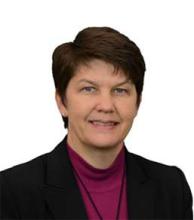
Ms. Heidi Barnes
World Wide Applications Engineer
EEsof EDA, High Speed Digital, Keysight Technologies
Thu, 03/12/2015
Abstract – This presentation will describe the latest challenges in transmitting electronic information at ever faster speeds while at the same time reducing the power consumed. This exciting new area of engineering is called Signal Integrity and Power Integrity. Signal Integrity enables today's computers to send trillions of ones and zeroes in a matter of seconds along a physical channel to a receiver. Power Integrity ensures that no matter how fast and how many ones and zeroes are switching they will all get enough power to switch states. A final example will show how this new area of engineering could have prevented the failure of the first transatlantic telegraph cable in 1865 and how far we have come since then.
Heidi Langeberg Barnes is the World Wide Application Engineer for High Speed Digital applications in the EEsof EDA Group of Keysight Technologies. Her professional experience includes more than 6 years in signal integrity for Automated Test Equipment load boards for Verigy and Advantest, 7 years in RF/Microwave microcircuit packaging for Agilent Technologies, 10 years in hydrogen fire and gas detection for rocket engine testing at NASA Stennis Space Center, and thin film solar cell design with Arco Solar. She holds 5 patents, is a recipient of the NASA Silver Snoopy Award, and has a Bachelor of Science degree in electrical engineering from the California Institute of Technology. She grew up locally in Sebastopol and discovered engineering through her high school summer intern jobs with Hewlett- Packard.
Optical Filters and Their Applications (2015)
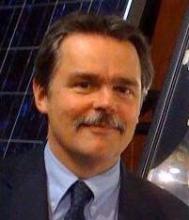
Dr. Robert Sargent
Director, Research and Development
Optical Security and Performance Products, JDSU
Thu, 03/05/2015
Abstract – Optical interference coatings find wide application in science and industry. It is hard to think of an optical instrument or system that does not benefit from their use, and many systems would not be possible without them. Sometimes the purpose of an optical coating may be relatively straightforward. Examples of such “simple” coatings include mirrors for the reflection of light as in the case of a telescope mirror, and antireflection coatings for the reduction of light reflection as in the case of a camera lens surface. In other situations an optical coating may perform a more essential function such as filtering for a specific wavelength band of light. The challenges of industry are constantly driving better performance and the development of improved and new optical coating technologies. This talk will provide a brief background on optical coatings and coating technology, and then give examples of how they have enabled fields such as Aerospace, Document Security, Telecommunications, and Consumer Electronics.
Dr. Sargent received his Bachelor’s Degree in Physics from the University of California, Berkeley, and his Ph.D. in Optical Sciences from the University of Arizona, Tucson. He has been with OCLI since 1989 and JDSU since 2000, serving in a variety of engineering and leadership roles. His work has concentrated on the development of energetic thin film deposition processes and methods for depositing narrowband and precision filters. Over the years he has enjoyed working with companies and universities to employ filter technology in applications such as optical instrumentation, wavelength division multiplexing (WDM) for fiber optic telecommunications, and consumer electronics. Since 2012 Dr. Sargent’s focus has shifted to include the development of optical coatings for document security applications. He is currently the leader of the Next Generation Products R&D Team in JDSU’s Optical Security and Performance Products group.